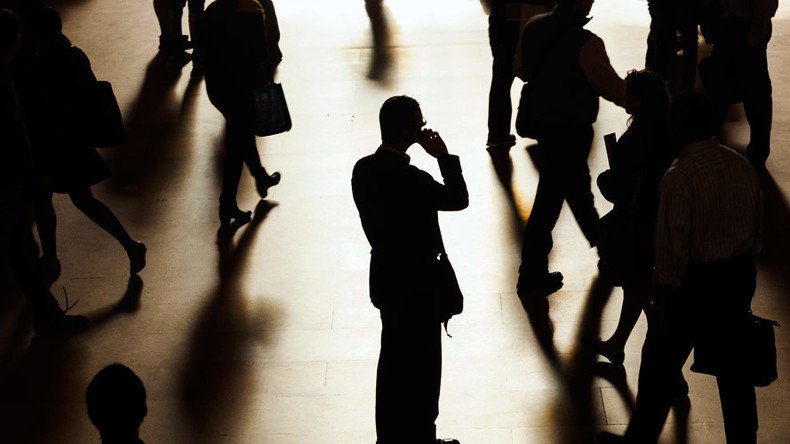Court wiretap requests up 17% with 100% approval rate – report

In a report to Congress, the Administrative Office of the US Courts found federal and state wiretapping requests increased 17 percent from 2014 to 2015. The principal target was drug investigations, and cell phone wiretapping was the leading request.
“A total of 4,148 wiretaps were reported in 2015, compared with 3554, the previous year. Of those 1,403 were authorized by federal judges, 10 percent more than in 2014, and 2,745 were authorized by state judges, an increase by 21 percent,” stated the US Courts administrative office on Monday, when it released its report.
“No wiretap applications were reported denied in 2015,” it added.
How many US wiretap requests were rejected in 2015? Not a single one. https://t.co/28J4At0pOV
— Xeni Jardin (@xeni) June 30, 2016
Under wiretap surveillance, law enforcement arrested over 4,000 people, a 26 percent increase from 2014, leading to a 7 percent increase in convictions, or 590 people.
Methods of surveillance can include wire, oral or electronic, ranging from tracking computer activity to bugging a home telephone or a room, as well as cell phone.
Wiretaps made up 96 percent of the surveillance requests in 2015, when on 3,969 occasions, law enforcement targeted people’s portable devices, including cell phone communications, text messages, and apps. The average cost of a wiretap was $42,216, up 7 percent from 2014.
He was intercepted on wiretap 13 times ordering close to $3,000 worth of cocaine https://t.co/ElykGCQFO2
— New York Post Metro (@nypmetro) July 5, 2016
Wiretaps requested by the FBI, state and local police can only be authorized for a maximum of 30 days.
In 2015, there was a 115 percent increase in extension requests on wiretaps, with over 3,000 authorized by federal and state courts across the US.
“A District of South Carolina order was extended nine times to complete a 300-day narcotics-related wiretap, while a Northern District of Illinois order was extended eight times to complete a 263-day wiretap in a bribery case,” stated the report. “The longest state intercept that terminated in 2015 in Queens County, New York, where the original order was extended 30 times to complete a 913-wiretape in a racketeering investigation.”
Over three-quarters of the wiretap requests, 79 percent, were for narcotics cases, down from 89 percent in 2014. Homicide and conspiracy investigations accounted for 5 percent each in 2015.
‘Hatchet to liberty’: New senate bill expands FBI’s warrantless #surveillance powers https://t.co/9goqVRqlz0pic.twitter.com/jnVN0hZkrB
— RT America (@RT_America) May 27, 2016
In 27 states, a total of 124 separate local jurisdictions reported wiretap applications. Six states accounted for 89 percent of all state wiretap applications – California, Colorado, Florida, Nevada, New Jersey and New York.
“California alone accounted for 41 percent of all applications approved by state judges,” the report showed.
Included in the report were the results of a 10-year study on wiretapping from 2005 to 2015, which showed a 96 percent increase in wiretapping requests and the majority, 81 percent, were for narcotics.
‘Dangerous expansion’: Senate challenges government surveillance powers with new billhttps://t.co/rJsfm8vB72pic.twitter.com/lzug4iNpez
— RT America (@RT_America) May 17, 2016
During the dispute over Apple’s iPhone encryption and the San Bernardino terrorist case this past April, when the US government tried to force Apple to provide a “backdoor” to access the phone, FBI Director James Comey argued that “absolute privacy” hinders law enforcement. He had also said that “going dark” made it impossible to easily understand a wiretapped message.
Huh. This is interesting in the federal wiretap report. https://t.co/c0Ahz2ZlHJpic.twitter.com/0IwPDBENiH
— Pwn All The Things (@pwnallthethings) June 30, 2016
According to the US Courts’ report, the number of wiretaps involving encryption decreased from 22 in 2014 to just seven in 2015, where officials were not able to decipher the plain text of the communications in an intercept.
Missing from the report’s statistics are those instances when the consent of one of the principal parties agrees to the wiretap. Keeping such records is not required.
The report also stated it does not include data on interceptions regulated by the Foreign Intelligence Surveillance Act of 1978. According to the Electronic Privacy Information Center, the US government filed 1,499 FISA requests in 2015, up from 1,416 in 2014.












